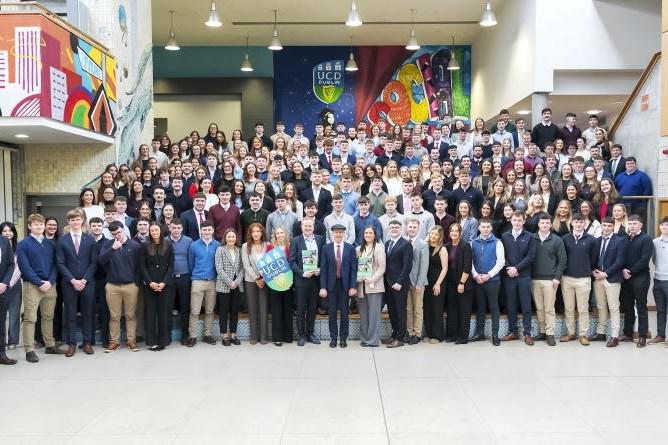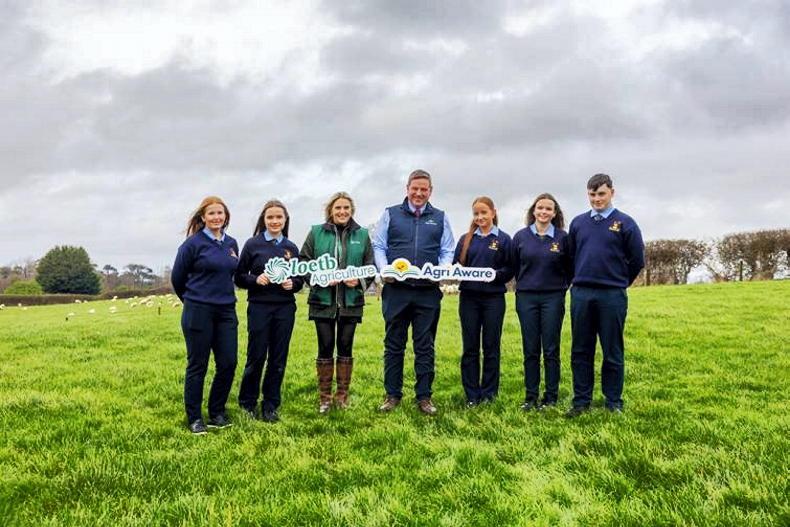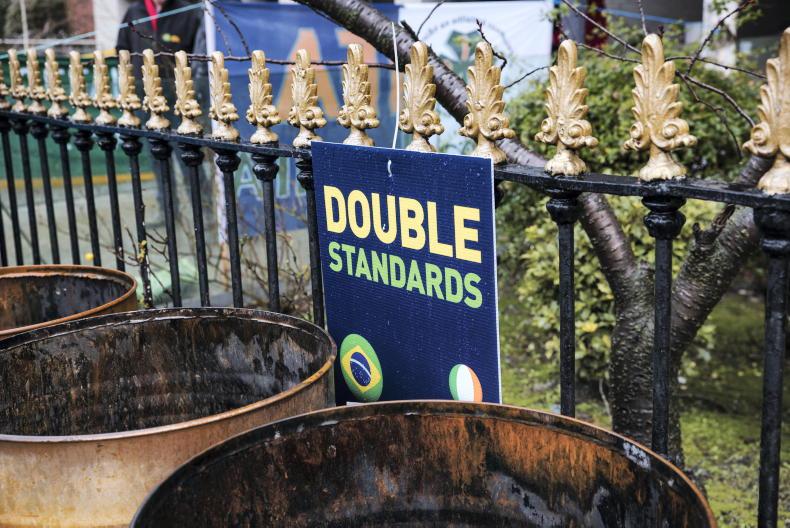Last Saturday evening we went into the local with my uncle, Fr Benny, who was visiting from England. It was quite there, the usual regulars sitting at the bar, but then a large group of young men came in. A phone was passed to me from an adjoining table with a smiling request asking for a picture to be taken. “Helpfully” he pointed to the circle I was to press before asking uncertainly “you know snapchat, right?” The inverted commas here are to signify my slight indignance at the assertion that I might not know how a social media app functions. And while I duly accept the natural passage of time, I did ask myself, when did that happen?
The annual Agricultural Science Association (ASA) conference and banquet takes place this week. I was president at the last in-person event, in 2019. I find it hard to believe that three years have passed but COVID-19 has impacted the perception of time for many.
Objectively, time passes at a constant linear rate but research (UCLA) shows that the speed at which time is perceived to pass is influenced by the physical and mental load associated with the tasks we perform.
Familiar tasks result in the sensation of time passing more slowly while complexity is associated with time passing more quickly. Everyone has their own experience. We are all subject to the passage of time and with that passage of time, we learn, we live and we lose people.
Con Lucey
An old colleague of mine, Ex IFA chief economist Con Lucey passed away last week. During her ASA presidential tenure, Dr Anne Marie Butler introduced ASA graduate podcasts. Con kindly agreed to record one of these podcasts with me this time last year.
Over the course of an hour or so, we talked through 40 years of Irish agricultural policy from the Farmers Rights Campaign to EEC membership, the “early shocks” of oil and cattle price crises, inflation, social partnership and CAP reform. I asked him what his proudest achievement was. His response referenced the quota regime and producing the figure that milk production was nine times more important in Ireland, relative to the overall EEC.
The man was indisputably confident in his ability, but without the ego that so often comes with his level of talent
The then Taoiseach, Garret Fitzgerald bought this case to Brussels and secured a special deal increasing the Irish quota to 5.4bn litres from 4.4bn (+22%). Being Con, of course, he also had the numbers done for me, commenting that in 2014, just before quota abolition, the output value to farmers of the additional Irish quota was €388m per year.
I only worked with Con for a few short years before his retirement. So despite what my inability to operate modern social media apps might suggest, I was not around for much of that historical journey Con took me on last September.
However, I was around to experience and benefit from Con’s support for younger staff in the organisation. The man was indisputably confident in his ability, but without the ego that so often comes with his level of talent - coaching and supporting those that came after him.
He mentioned the changes of which he was a part - “In my first two decades in IFA it was a very traditional and conservative organisation. All the Executive staff were men … but by the time I retired, women were as likely as men to be employed as Executives. I was particularly pleased that my successor as IFA Economist was a young woman, Rowena Dwyer, who did a fine job”.
Con Lucey, RIP will be sadly missed by his friends, colleagues and the farmers he supported over his life in farming.
Read more
Community Rising: Billy’s Tea Rooms
Learning about the EU and EU agriculture at The Irish College Leuven
Last Saturday evening we went into the local with my uncle, Fr Benny, who was visiting from England. It was quite there, the usual regulars sitting at the bar, but then a large group of young men came in. A phone was passed to me from an adjoining table with a smiling request asking for a picture to be taken. “Helpfully” he pointed to the circle I was to press before asking uncertainly “you know snapchat, right?” The inverted commas here are to signify my slight indignance at the assertion that I might not know how a social media app functions. And while I duly accept the natural passage of time, I did ask myself, when did that happen?
The annual Agricultural Science Association (ASA) conference and banquet takes place this week. I was president at the last in-person event, in 2019. I find it hard to believe that three years have passed but COVID-19 has impacted the perception of time for many.
Objectively, time passes at a constant linear rate but research (UCLA) shows that the speed at which time is perceived to pass is influenced by the physical and mental load associated with the tasks we perform.
Familiar tasks result in the sensation of time passing more slowly while complexity is associated with time passing more quickly. Everyone has their own experience. We are all subject to the passage of time and with that passage of time, we learn, we live and we lose people.
Con Lucey
An old colleague of mine, Ex IFA chief economist Con Lucey passed away last week. During her ASA presidential tenure, Dr Anne Marie Butler introduced ASA graduate podcasts. Con kindly agreed to record one of these podcasts with me this time last year.
Over the course of an hour or so, we talked through 40 years of Irish agricultural policy from the Farmers Rights Campaign to EEC membership, the “early shocks” of oil and cattle price crises, inflation, social partnership and CAP reform. I asked him what his proudest achievement was. His response referenced the quota regime and producing the figure that milk production was nine times more important in Ireland, relative to the overall EEC.
The man was indisputably confident in his ability, but without the ego that so often comes with his level of talent
The then Taoiseach, Garret Fitzgerald bought this case to Brussels and secured a special deal increasing the Irish quota to 5.4bn litres from 4.4bn (+22%). Being Con, of course, he also had the numbers done for me, commenting that in 2014, just before quota abolition, the output value to farmers of the additional Irish quota was €388m per year.
I only worked with Con for a few short years before his retirement. So despite what my inability to operate modern social media apps might suggest, I was not around for much of that historical journey Con took me on last September.
However, I was around to experience and benefit from Con’s support for younger staff in the organisation. The man was indisputably confident in his ability, but without the ego that so often comes with his level of talent - coaching and supporting those that came after him.
He mentioned the changes of which he was a part - “In my first two decades in IFA it was a very traditional and conservative organisation. All the Executive staff were men … but by the time I retired, women were as likely as men to be employed as Executives. I was particularly pleased that my successor as IFA Economist was a young woman, Rowena Dwyer, who did a fine job”.
Con Lucey, RIP will be sadly missed by his friends, colleagues and the farmers he supported over his life in farming.
Read more
Community Rising: Billy’s Tea Rooms
Learning about the EU and EU agriculture at The Irish College Leuven








SHARING OPTIONS